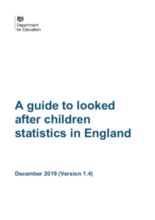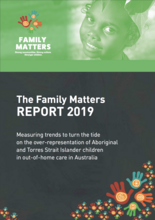Displaying 81 - 90 of 565
This document provides a guide to looked after children statistics published by the UK Department for Education.
Cross-sectional analysis by the Scottish Government show that the educational outcomes for looked after children are much poorer than for other children in Scotland. This presentation will discuss methods to create a longitudinal data set from these data and thus infer how a child’s lifetime history of care relates to their educational outcomes.
In this study, the authors analyse a child protection services dataset that includes a network of approximately 5 million social relationships collected by social workers between 1996 and 2016 in New Zealand to test the potential of information about family networks to improve accuracy of models used to predict the risk of child maltreatment.
This exploratory data analysis of 937 children in 522 families in one London local authority sought to identify trends in the length, outcome and nature of pre-proceedings and proceedings cases, including outcomes six, twelve and twenty-four months after the end of these processes.
The purpose of this study was to use record linkage of birth cohort and administrative data to study educational outcomes of children who are looked-after (in public care) and in need (social services involvement), and examine the role of early life factors.
The Family Matters report sets out what governments are doing to turn the tide on over-representation of Aboriginal and Torres Strait Islander children in out-of-home care in Australia and the outcomes for children and their families.
Since 2017, The Chronicle of Social Change has been working to build the first public resource on foster care capacity in the United States, through the Who Cares project which collects data directly from each state, and combines it with specially obtained federal reports. This executive summary provides and overview of methodology and findings of the Who Cares project for 2019.
This study aimed to identify the factors that affect the incidence rate of neglected children in Indonesia by considering the household effect.
This article draws on national data and quantitative data from a study of ‘City’, a local authority in the north of England with a large Family Group Conference service.
In this case study, the authors address a critical component of health care delivery for a vulnerable population by describing a process of developing an information sharing system between health care and child welfare organizations in collaboration with child protection community partners in the US.


